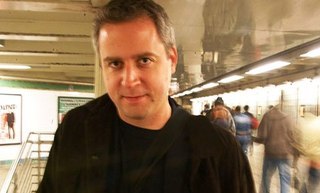|
Back
A Buffet for the Ear New York
Alice Tully Hall, Lincoln Center
11/16/2016 -
Guillaume Machaut: Doulz amis, oy mon complaint
Gilles Binchois: Triste plaisir et douleureuse joye
Johannes Ockeghem: Kyrie from Missa prolationum
Guillaume Dufay: Franc cuer gentil, sur toutes gracieuse
Josquin des Prés: Kyrie from Missa “Pange lingua”
William Byrd: A Voluntarie from My Ladye Nevells Booke of Virginal Music
Carlo Gesualdo: O dolce mio tesoro
Claudio Monteverdi: Zefiro torna e di soave accenti, SV 251
Domenico Scarlatti: Sonata in B-flat major, K. 545
Johann Sebastian Bach: Chromatic Fantasia and Fugue in D minor, BWV 903
Wolfgang Amadeus Mozart: Andante from Sonata No. 16 in C major, K. 545
Ludwig van Beethoven: Allegro molto e con brio, from Sonata No. 5 in C minor, Opus 10, No. 1
Robert Schumann: In der Nacht, from Fantasiestücke, Opus 12, No. 5
Fryderyk Chopin: Preludes in C Major & in A minor, Opus 28, No. 1 & No. 2
Franz Liszt: Isoldes Liebestod, from Richard Wagner’s Tristan und Isolde
Johannes Brahms: Intermezzo in B minor from Klavierstücke, Opus 119, No. 1
Arnold Schoenberg: Mässige Viertel, from Drei Klavierstücke
Achille-Claude Debussy: Reflets dans l’eau from Images, Series 1
Igor Stravinsky: Piano-Rag Music
Karlheinz Stockhausen: Klavierstück I
Philip Glass: Etude No. 2
György Ligeti: Automne à Varsovie, from Etudes, Book I
Jeremy Denk (Pianist)

J. Denk (© 92nd St. Y)
A visionary neologist should be commissioned to invent a word describing a concert-hall evening with Jeremy Denk. A mere “recital” will never do. Nor “concert” nor “performance” or “musical presentation.” Instead, Mr. Denk deserves a bon mot somewhere between “adventure” and “celebration.”
Though this doesn’t begin to describe the hour or two or three when he is at one of his keyboards (Steinway or computer). His range on the Blogosphere has made him an international star even for the tone-deaf. But his range on the Steinway is enormous, his technique seems sent from Above, and he has a mastery–as was shown last night–of six centuries.
That, though, is the beginning of Mr. Denk’s singularity. He has no hesitation in pairing Webern with Mozart, of tackling the Goldberg Variations without a thought for Glenn Gould, and for showing his chops in both jazz and Josquin.
Last night, though, Mr. Denk, without hesitation or score or intermission or more than a beat between works, tackled the entire post-Dark Ages history of music. He took a few minutes more than an hour to parade a list from Machaut to Schumann to Ligeti and Glass.
The motivation? Mr. Denk explained that this was less “a stunt or a lesson” and more of a story. Specifically, “the wonder of this centuries-long tale, its many twists and turns, its seeming dead ends and sudden epiphanies.”
And yes, the almost full house for this White Lights presentation was enthralled with the program. Not a breath, nary a cough, and even when the titles on the screen became entangled (the projectionist didn’t catch the space between Bach Fantasia and Fugue, and listed Mozart for Bach and Beethoven for Schumann), nobody giggled or nudged to show their knowledge.
Did this all work? As a performer–and yes, an impeccable artist–Mr. Denk was certainly amazing. The Liszt arrangement of Tristan was spectacular, that Bach Fantasia was given the super-Baroque treatment, Stravinsky’s rare Piano-Rag Music was a cubist miracle of volition, and the Schoenberg piece almost sounds like a waltz.
These, though, were piano works per se. Mr. Denk played pre-piano music with a vocalism for the troubadours, an orchestral massiveness for Monteverdi, and a good choral setting for Josquin and Ockeghem. Purists will say that these arrangements hardly matched the original work. But that would hardly dent Mr. Denk’s enthusiasm–or mastery in giving a good replicas of the original.
In other words, this was pianism of the highest order. I’m uncertain whether or not he told the “story” of music, as there were too many invisible bridges to cross, perhaps too much piano. And I’m equally dubious that this wasn’t a very serious “stunt.”
Yet if it did have that stunt-like texture, nothing was wrong with that. Cadenzas are equally a stunt, something to show off the art of the soloist. And Mr. Denk could, if he wanted, boast about his remarkable skills.
Though one must take Jeremy Denk at his word–even more than his music. For his own program notes, like his Internet blogs, gave even a better indication of his thoughts. Why he chose a long masterpiece by Bachy and a simple Mozart Andante. Why he followed a wild Beethoven movement directly with a sedate Schumann piece. How he compared Ligeti with Glass.
Like everybody else last night, I was enthralled by Mr. Denk’s artistry (Duh!), though certainly not emotionally enraptured. One does like to wrap oneself into a genre or vein of music and let it grow or mature over a few movements. But admittedly, this morning, reading his program notes, I felt the thread of music, in his vision of history, as a continuing line.
Not, of course, an evolutionary line. While composition and instruments have developed through the ages, some listeners prefer the charm of the earliest music to the complexity of today. Jeremy Denk, though, gave us enough satisfactory variety–31 pieces by my count–to let us pursue our own paths.
Perhaps last night’s buffet was the overture to his own written take on music history in book form, with musical examples. It won’t substitute for a complete concert, of course, but Jeremy Denks ideas are always always both an adventure and a celebration.
Harry Rolnick
|